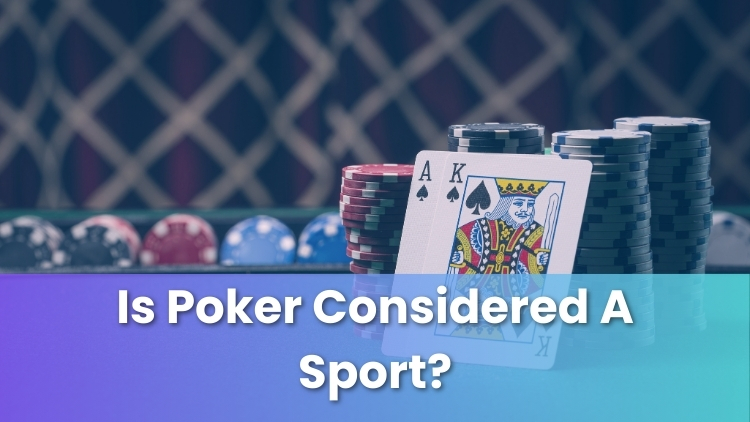
Have you ever wondered if poker is more than just a card game? Across kitchen tables and casino floors, poker has captured the interest of many, raising a key question: can it be called a sport?
For some people, all card games, including poker, are games of chance and cannot fall under the umbrella of a sport. However, there are many who argue that it requires skill, strategy, and a competitive spirit - similar to traditional sports.
In this blog post, we are going to explore the different viewpoints, dive into what makes a sport, and see where poker fits into this picture. Get ready to delve into the fascinating world of poker and decide for yourself if it is simply a pastime or something much more.
Is Poker a Sport?
To figure out if poker is a sport, it helps to first understand what a sport typically involves. Sports are often defined by physical activity, skill, competition, and rules. Traditional sports like football or tennis fit this description easily.
Poker, however, does not require much physical effort beyond shuffling cards and keeping a steady hand. Instead, poker is more about mental skills. Players need quick thinking, strategy, and - to some extent - an understanding of human behaviour to succeed.
Another key aspect of sports is competition. Poker is undeniably competitive. Players go head-to-head against others in each game, with there even being tournaments available, testing their skills against others to win cash prizes.
Organised poker events, like the World Series of Poker, mirror traditional sports tournaments. They involve rankings, professional players, and spectators, adding a sense of sporting structure.
In the end, whether poker is a sport depends on how one interprets the role of mental skill versus physical activity. Some may see it as a sport due to its competitive and strategic elements, while others may consider it a game or leisure activity due to its lack of physical aspect.
As you reflect on this, it is clear that poker shares some characteristics with sports, but it remains unique in its emphasis on mental prowess.
Is Poker a Sport Or Gambling?
Poker sits at an interesting crossroads between being a sport and a form of gambling. Understanding the difference between these two ideas can help make it clearer.
On one hand, poker involves gambling because players bet real money for the opportunity to win more, which includes an element of chance. The deck of cards is shuffled, and nobody can fully predict what the next hand might bring.
However, unlike games of pure chance, like roulette, poker also requires a fair amount of skill. Experienced players use strategy, observe their opponents, and make informed decisions. This skill element is what leads some to think of poker as more than just gambling. Also, since the game is played against other players instead of against the house (casino), this also leads many to put it towards a sport.
In the world of poker, skilled players often perform better over time. While chance is still a factor in the game, it is more short-lived, with a greater emphasis being placed on strategy and skill. This balance of chance and skill is what makes poker so interesting and engaging to both players and spectators.
Ultimately, poker can be seen as a sport for those who focus on strategy, skill and player-versus-player elements, while it is also gambling because players are staking their own money for a chance to potentially win more. Understanding this dual nature is key to appreciating the game and the complexity surrounding its categorisation.
How To Start a Poker League?
Starting a poker league can be a fun way to enjoy the game regularly with friends or fellow enthusiasts. Here are some basic steps to help you get started.
First, gather a group of interested players. You could start with friends, family, or fellow poker fans. Having a committed group is key to keeping the league going.
Next, decide on the format and frequency of your games. Will you play weekly, monthly, or another schedule? Choose a format that suits everyone, whether it is a cash game or a points-based system leading to a final tournament.
You'll also need a place to play. This could be someone's home, a community centre, or a local club. Ensure the location is comfortable and can accommodate your group.
Importantly, check the gambling regulations in the UK before you start. Make sure your poker league complies with the relevant rules and is operated legally; this is crucial if you are planning on playing with real money. This may include limits on stakes, prizes, or specific licences if running the league at a public venue.
Finally, agree on the rules for gameplay, betting, and etiquette. Doing so can help avoid disputes and keep the league enjoyable for everyone involved. With these steps, you are well on your way to starting a successful poker league.
**The information provided in this blog is intended for educational purposes and should not be construed as betting advice or a guarantee of success. Always gamble responsibly.
